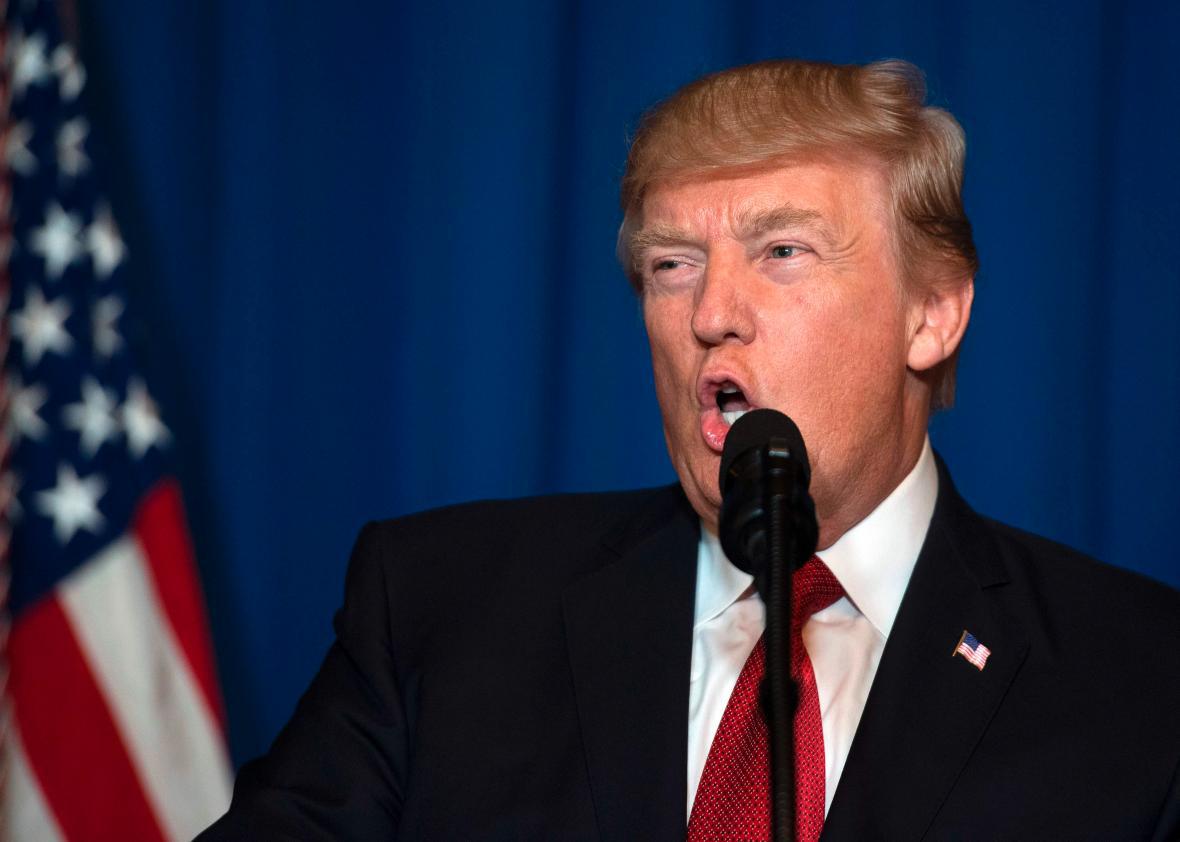President Trump once again showed his predilection for strongmen dictators who operate by their own law, often with murderous results, when he spoke to Philippine President Rodrigo Duterte Saturday and invited him to the White House. The White House characterized the call as a “very friendly conversation” where the two discussed the North Korea threat, as well as “the fact that the Philippine government is fighting very hard to rid its country of drugs, a scourge that affects many countries throughout the world.”
“The discussion that transpired between the presidents was warm, with President Trump expressing his understanding and appreciation of the challenges facing the Philippine president, especially on the matter of dangerous drugs,” a Philippine spokesman said in a statement.
Let’s stop right there. The Duterte regime, since coming to power last year, has waged an extrajudicial war against “drugs” in the Philippines. Under the auspices of cleaning up the streets of drug traffickers, the government has killed thousands of people—young and old—some who are dealers, but many who are addicts. (For a sense of the scope and savagery of the killing, check out Daniel Berehulak’s photo essay in the New York Times entitled “They Are Slaughtering Us Like Animals.”) Duterte’s emphasis on law and order above all else, particularly when it comes to the drug trade, is downright Trumpian in its tone and rhetoric. His ability to impose law and order at his own discretion is also something the American president publicly pines for.
Meanwhile, Duterte has also upended the Philippines relationship with the United States since coming to power and has proven to be a chaotic influence on the region. Early in his tenure, Duterte insulted then-President Obama, which prompted a rebuke from the White House, shaking a longstanding strategic relationship for both countries. The Philippines also began looking towards autocratic countries, namely China and Russia, as potential partners that didn’t impose the same caveats and strings on the relationship, as the Americans did.
It’s unsurprising given Duterte’s reputation for havoc that he’s been compared to his American counterpart, Donald Trump. The call and apparent warm embrace of Duterte’s methods and madness is the latest indication of Trump’s affinity for autocratic rulers and his willingness to break with previous U.S. norms on demanding respect for human rights and democratic institutions. Earlier this month, Trump reached out to congratulate Turkish President Recep Tayyip Erdogan on winning a referendum in Turkey that is widely seen as dramatically weakening democratic oversight and entrenching Erdogan’s power in the presidency. Trump has also spoken warmly of President Xi Jinping of China recently after meeting at Mar-a-Lago and then there is, of course, Vladimir Putin in Russia.
One autocrat that remains at odds with the U.S. government is Kim Jong-un in North Korea and perhaps that’s only because Kim is literally trying to develop nuclear weapons to threaten the United States. Otherwise, who knows? In the end, perhaps Kim and North Korea are going about this all wrong. Instead of nuclear saber-rattling, just give Donald Trump a call, it appears to be the best way to get him to do—and say—exactly what you want.
